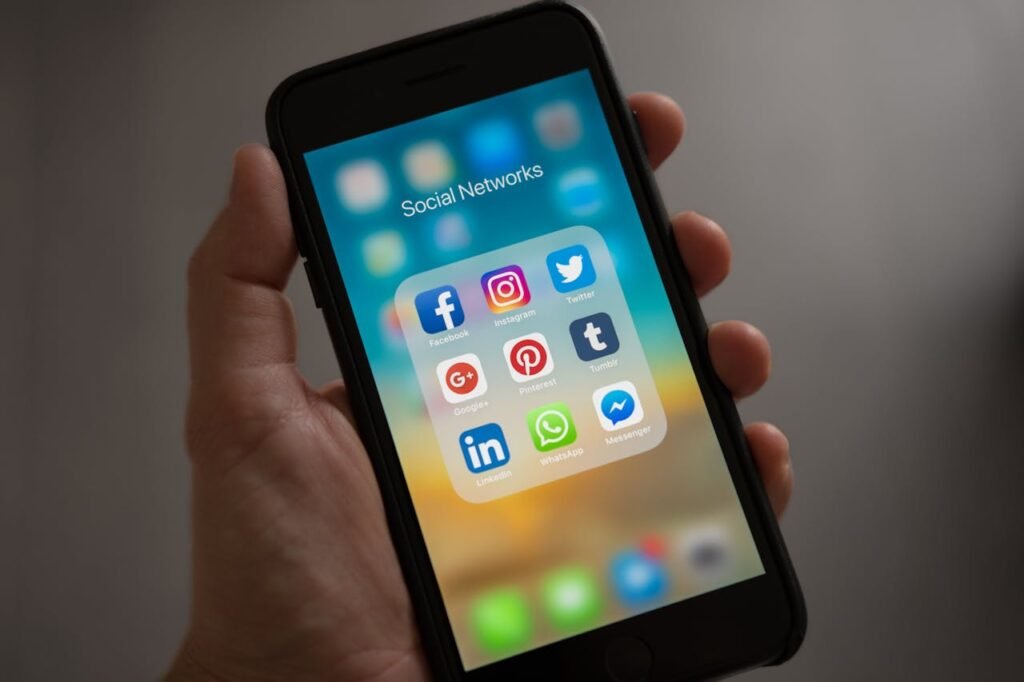In a world where inclusivity is a growing priority, advocacy organizations supporting people with disabilities play a critical role. These organizations empower individuals, create awareness, and work tirelessly to ensure equal opportunities for everyone. From fighting for legal rights to providing essential resources, their efforts impact lives in profound ways.
This article highlights some of the top advocacy organizations championing the cause of disability rights worldwide. Whether you’re seeking support, looking to get involved, or simply curious about the incredible work being done, this guide provides valuable insights into their missions, initiatives, and achievements.
Understanding the Role of Advocacy Organizations
Advocacy organizations serve as the backbone of the disability rights movement. Their work is multifaceted, encompassing legal support, policy advocacy, community engagement, and resource provision. These organizations often collaborate with governments, businesses, and individuals to create an inclusive society where everyone has the opportunity to thrive.
Fighting for Legal Rights
One of the primary roles of advocacy organizations is to ensure that people with disabilities have access to their legal rights. This includes fighting for anti-discrimination laws, ensuring accessibility in public spaces, and advocating for equal opportunities in education and employment.
For instance, organizations often spearhead campaigns to strengthen legislation that protects individuals with disabilities from workplace discrimination. These efforts not only raise awareness but also create tangible changes that improve daily life.
Businesses can align with these initiatives by adopting inclusive hiring practices and collaborating with advocacy groups to ensure their policies comply with accessibility standards. Supporting these efforts helps build a reputation as a disability-friendly organization while contributing to societal progress.
Providing Resources and Support
Advocacy organizations also focus on equipping individuals with disabilities and their families with the resources they need to succeed. This includes educational programs, financial assistance, vocational training, and access to assistive technologies.
For example, an organization might offer workshops on how to navigate the complexities of healthcare systems or provide grants for adaptive devices. These resources empower individuals to overcome barriers and live independently.
Businesses can contribute by partnering with advocacy groups to distribute their products or services to those in need. For instance, a prosthetics manufacturer might collaborate with an organization to provide affordable or subsidized prosthetic limbs to underserved communities.

Spotlight on Global Advocacy Organizations
Several organizations operate on a global scale, addressing diverse needs and challenges faced by people with disabilities. Their work spans advocacy, research, and community-building efforts that create lasting impact.
Empowering Communities Through Education
Education is a cornerstone of empowerment, and many advocacy organizations prioritize educational initiatives. These programs range from literacy campaigns for children with disabilities to career development workshops for adults.
For instance, a global organization might partner with schools to ensure that children with disabilities have access to inclusive education. By training teachers, providing adaptive learning tools, and raising awareness about the importance of accessibility in classrooms, these organizations create opportunities for lifelong success.
Businesses in the education sector can collaborate with advocacy groups to develop accessible learning materials or sponsor programs that promote inclusion. Highlighting these partnerships in marketing campaigns demonstrates a commitment to social responsibility and fosters goodwill among customers.
Advocating for Accessibility in Technology
In today’s digital age, accessibility in technology is more important than ever. Advocacy organizations work to bridge the digital divide by promoting accessible design in software, websites, and devices.
For example, an organization might collaborate with tech companies to create screen readers for visually impaired users or develop apps that simplify navigation for individuals with mobility challenges. These innovations not only enhance quality of life but also demonstrate the power of inclusive design.
Tech companies can support these efforts by incorporating accessibility features into their products and seeking feedback from advocacy organizations. Engaging with these groups ensures that technological advancements benefit a broader audience and align with the principles of universal design.
National Advocacy Organizations Driving Change
While global organizations often garner widespread recognition, national advocacy groups are equally important. These organizations focus on addressing specific issues within their countries, tailoring their initiatives to local cultures, policies, and challenges.
Promoting Employment Opportunities
In many countries, individuals with disabilities face significant barriers to employment, including workplace discrimination, lack of accommodations, and limited vocational training opportunities.
National advocacy organizations address these issues by working directly with employers, policymakers, and individuals to promote inclusive hiring practices.
For example, an advocacy group might provide training for businesses on how to create an accessible workplace, from designing physical spaces to implementing flexible work policies.
Simultaneously, they may offer job readiness programs that equip individuals with the skills and confidence needed to excel in their chosen fields.
Businesses can support these efforts by partnering with advocacy groups to develop mentorship programs or internships for individuals with disabilities. These collaborations benefit both parties, as they help companies diversify their workforce while empowering employees with disabilities to thrive.
Ensuring Access to Healthcare
Access to quality healthcare is a fundamental right, but individuals with disabilities often face unique challenges, from inaccessible facilities to inadequate insurance coverage.
National advocacy organizations play a crucial role in addressing these disparities by advocating for policy changes, training healthcare providers, and offering direct support to patients.
For instance, an organization might work with hospitals to implement accessibility audits, ensuring that exam rooms, diagnostic equipment, and communication methods are inclusive. They may also provide financial assistance for adaptive devices or therapies not covered by insurance.
Healthcare companies can align with these initiatives by offering disability-specific services or collaborating with advocacy groups to improve their accessibility. By integrating inclusive practices into their operations, businesses contribute to a more equitable healthcare system while building trust with their communities.

Advocacy in Education and Youth Empowerment
Education is a powerful tool for breaking down barriers and opening doors to opportunity. Advocacy organizations focusing on education aim to ensure that children and young adults with disabilities have access to inclusive, high-quality learning environments.
Supporting Inclusive Education
Inclusive education goes beyond accommodating physical disabilities—it encompasses creating curricula, teaching methods, and social environments that embrace diversity. Advocacy organizations work to eliminate segregation in schools, promote awareness among educators, and provide resources for inclusive teaching.
For example, an organization might develop teacher training programs that equip educators with the skills to support students with disabilities. These programs may include strategies for differentiated instruction, classroom modifications, and fostering empathy among peers.
Businesses in the education sector can amplify these efforts by offering adaptive learning technologies or sponsoring inclusive education initiatives. For instance, an edtech company might create software designed to meet the needs of students with cognitive or sensory disabilities, ensuring that all learners can engage with the material effectively.
Empowering the Next Generation
Youth empowerment is another key focus for advocacy organizations. By providing mentorship, leadership training, and extracurricular opportunities, these groups help young individuals with disabilities build confidence and achieve their full potential.
For instance, an organization might host summer camps or workshops where participants learn valuable skills, such as public speaking, teamwork, or self-advocacy. These programs create a supportive community that inspires individuals to pursue their dreams.
Businesses can contribute by sponsoring these programs or creating internship opportunities that provide hands-on experience in various industries. Highlighting the success stories of young participants further demonstrates a company’s commitment to fostering inclusion and opportunity.
Advocacy Organizations and Public Policy
Advocacy organizations are instrumental in influencing public policy, ensuring that the rights and needs of individuals with disabilities are recognized and addressed by governments. Their work spans various sectors, from transportation to healthcare, shaping legislation and programs that improve accessibility and inclusion.
Advocating for Accessible Transportation
Transportation is a critical aspect of independence for individuals with disabilities. Advocacy organizations often work closely with government agencies to ensure public transportation systems are accessible, affordable, and reliable.
For instance, an advocacy group might lobby for regulations requiring buses and trains to include features like ramps, priority seating, and audible or visual announcements. They may also push for ride-sharing companies to adopt inclusive practices, such as offering wheelchair-accessible vehicles.
Transportation companies can proactively collaborate with these organizations to improve their services. By conducting accessibility audits or implementing pilot programs for adaptive vehicles, businesses demonstrate a commitment to inclusivity while gaining valuable insights into customer needs.

Driving Legislative Change
From anti-discrimination laws to funding for disability services, advocacy organizations play a vital role in shaping legislation that protects the rights of individuals with disabilities.
These groups engage in activities such as drafting policy recommendations, testifying before legislative bodies, and organizing public awareness campaigns.
For example, an organization might advocate for policies that mandate accessible design in new buildings or provide tax incentives for businesses that implement inclusive practices. These efforts not only improve societal infrastructure but also create opportunities for companies to align with progressive standards.
Businesses can support these initiatives by actively participating in advocacy campaigns or contributing resources to policy development efforts. For instance, a prosthetics manufacturer might partner with an organization to promote funding for advanced assistive technologies, benefiting both the industry and its users.
The Role of Grassroots Advocacy
While national and global organizations often lead large-scale efforts, grassroots advocacy plays an equally important role in supporting local communities. These initiatives are driven by individuals and small groups who address specific challenges and create meaningful change at the community level.
Building Local Networks
Grassroots advocacy often begins with building networks of individuals who share common goals. These networks provide a platform for raising awareness, sharing resources, and coordinating efforts to address local needs.
For example, a group of wheelchair users might collaborate to advocate for accessible sidewalks in their neighborhood. Through petitions, meetings with local officials, and community events, they bring attention to the issue and push for change.
Businesses operating at the local level can amplify these efforts by sponsoring events, donating resources, or offering expertise. For instance, a local hardware store might partner with advocates to provide materials for constructing ramps or repairing accessible pathways.
Inspiring Broader Movements
Grassroots initiatives often inspire larger movements by demonstrating the power of community action. Successful campaigns can serve as models for other regions, encouraging replication and scaling of solutions.
For example, a small advocacy group that implements accessible beach access in one town might inspire similar efforts in neighboring communities. By sharing their strategies and outcomes, they contribute to a broader cultural shift toward inclusion.
Businesses that support grassroots advocacy benefit from enhanced community relationships and visibility. Highlighting these partnerships in marketing materials reinforces their role as socially responsible and community-oriented organizations.
Leveraging Technology for Advocacy
Technology has become a powerful tool for advocacy organizations, enabling them to reach wider audiences, engage supporters, and amplify their impact. From social media campaigns to virtual events, technology facilitates new ways of connecting and driving change.
Expanding Reach Through Social Media
Social media platforms provide advocacy organizations with an effective way to raise awareness and mobilize support. Campaigns that include compelling visuals, personal stories, and actionable steps resonate with audiences and inspire participation.
For example, an organization might launch a social media campaign showcasing the daily experiences of individuals with disabilities, highlighting both challenges and triumphs. These stories humanize the cause and encourage viewers to take action, whether by signing a petition, making a donation, or joining an event.
Businesses can enhance these efforts by sponsoring social media campaigns or leveraging their platforms to share advocacy content. Aligning with powerful stories builds emotional connections with audiences and reinforces the brand’s commitment to inclusion.

Hosting Virtual Events
Virtual events, such as webinars, panel discussions, and online fundraisers, have become increasingly popular for advocacy organizations. These events offer an inclusive and cost-effective way to engage supporters, share knowledge, and raise funds.
For example, an organization might host a virtual conference featuring speakers with disabilities who share their perspectives on employment, education, and accessibility. Attendees from around the world can participate, fostering a sense of global community.
Businesses can collaborate on these events by serving as sponsors or providing technological support. Offering platforms, software, or expertise ensures seamless execution while positioning the company as a valuable partner in advocacy efforts.
Fostering Global Collaboration
Advocacy organizations increasingly recognize the value of global partnerships in addressing the shared challenges faced by people with disabilities. By collaborating across borders, these organizations can exchange ideas, pool resources, and amplify their impact on a worldwide scale.
Sharing Best Practices
One of the key benefits of global collaboration is the ability to share best practices and innovative solutions. Different countries and regions have unique approaches to addressing disability-related challenges, from designing accessible infrastructure to implementing inclusive education programs.
For example, an advocacy organization in Europe might share insights on accessible public transportation systems with counterparts in developing countries. These shared strategies can accelerate progress and inspire new initiatives tailored to local contexts.
Businesses with an international presence can facilitate these exchanges by organizing forums, publishing white papers, or funding research projects. For instance, a global tech company might sponsor an international summit on accessible technology, fostering dialogue among experts and advocates.
Strengthening Advocacy Networks
Global collaboration also strengthens advocacy networks by connecting organizations with complementary goals. These networks provide a platform for joint campaigns, coordinated lobbying efforts, and the exchange of resources, creating a unified voice for disability rights.
For instance, a coalition of advocacy groups might work together to influence international policies on disability inclusion, such as those set by the United Nations or World Health Organization. This collective action amplifies their influence and ensures that disability issues remain a global priority.
Businesses can support these efforts by joining or funding coalitions dedicated to advancing disability rights. Partnering with advocacy networks demonstrates a commitment to inclusivity and positions the company as a leader in corporate social responsibility.
Measuring the Impact of Advocacy
Measuring the impact of advocacy efforts is essential for understanding their effectiveness and identifying areas for improvement. Advocacy organizations use a range of tools and methods to evaluate their initiatives, from tracking legislative changes to collecting feedback from beneficiaries.
Assessing Policy Outcomes
One way advocacy organizations measure their impact is by assessing the outcomes of their policy efforts. This includes tracking the adoption of new laws, regulations, or programs that benefit individuals with disabilities.
For example, an organization advocating for accessible public spaces might measure success by the number of ramps installed, elevators added, or pathways modified in a given city. These tangible outcomes provide clear evidence of progress and inspire continued action.
Businesses can align with these measurement efforts by incorporating impact reporting into their own accessibility initiatives. For instance, a company that funds adaptive sports programs could track participation rates, user satisfaction, and personal stories of transformation to demonstrate its contribution to disability inclusion.
Collecting Community Feedback
Feedback from the disability community is another vital metric for measuring the success of advocacy initiatives. This feedback helps organizations understand whether their programs are meeting the needs of individuals and where adjustments may be necessary.
For instance, an advocacy group providing vocational training might conduct surveys to evaluate participants’ experiences and career outcomes. These insights inform program improvements and ensure continued relevance.

Businesses partnering with advocacy organizations can adopt similar practices by engaging directly with their customers or beneficiaries. Hosting focus groups, conducting interviews, or inviting testimonials ensures that products and services align with the needs of the disability community.
The Future of Disability Advocacy
As the world becomes more interconnected, the future of disability advocacy is poised for growth and innovation. Organizations are embracing new strategies, technologies, and partnerships to drive meaningful change and build a more inclusive society.
Embracing Intersectionality
Disability advocacy is increasingly recognizing the importance of intersectionality—the interconnected nature of social identities such as race, gender, and socioeconomic status. By addressing these intersections, advocacy organizations can better serve diverse communities and ensure that no one is left behind.
For example, an organization focusing on education might develop programs tailored to the unique challenges faced by girls with disabilities in low-income regions. These initiatives promote equity by addressing multiple layers of disadvantage.
Businesses can support intersectional advocacy by incorporating inclusive practices into their operations and marketing strategies. Highlighting diverse voices and stories in campaigns reinforces the message that inclusion benefits everyone.
Harnessing the Power of Technology
Advances in technology continue to shape the future of advocacy, offering new tools for communication, engagement, and impact measurement. From AI-driven accessibility solutions to blockchain-based funding platforms, technology is expanding the possibilities for advocacy organizations and their partners.
For example, a prosthetics manufacturer could leverage virtual reality to host immersive workshops, allowing participants to experience the challenges faced by individuals with disabilities. These experiences foster empathy and drive support for advocacy efforts.
Investing in cutting-edge technologies demonstrates a forward-thinking approach and ensures that businesses remain leaders in accessibility and innovation.

Conclusion
Advocacy organizations supporting people with disabilities are driving progress, breaking barriers, and creating opportunities for millions worldwide. Their work reminds us that inclusion is not just a moral imperative—it’s a catalyst for innovation, growth, and shared prosperity.
For businesses, partnering with these organizations offers a chance to make a meaningful impact while fostering trust and loyalty among diverse audiences. By investing in advocacy, embracing inclusivity, and championing disability rights, companies can help build a world where everyone has the opportunity to thrive.
The path to inclusivity is a collective journey, and every contribution counts. Together, we can amplify the voices of advocacy organizations, celebrate the achievements of the disability community, and pave the way for a brighter, more equitable future.




Really insightful post! Appreciate the clarity and depth you’ve provided—definitely learned something new today.
Sir, I am retired disabled person working in a nationalised bank. I wish to fight a case of my service matter. I am looking for an advocate in Bengaluru who will take up my case. I will pay his fees within my limit.
will you please help?